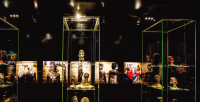 The discussion about the restitution of ethnographic works – be them artistic, documental or human remains – to the countries of origin is not new, but regained prominence two weeks ago with the announcement of Emmanuel Macron’s decision to return a bronze collection to Benin, from where the artworks were taken at the end of the 19th century in a punitive military expedition against the kingdoms of west Africa.
The discussion about the restitution of ethnographic works – be them artistic, documental or human remains – to the countries of origin is not new, but regained prominence two weeks ago with the announcement of Emmanuel Macron’s decision to return a bronze collection to Benin, from where the artworks were taken at the end of the 19th century in a punitive military expedition against the kingdoms of west Africa.
To read
29.12.2018 | by vários
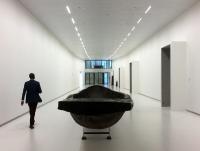 Three options emerged for the museum’s “reorganization”. First, there was the possibility of clearing the museum’s contents and reopening as an empty museum. Second, there was the option of destroying the museum and building a new one. The third tabled choice was to come up with a reinvented museology that would engage with the museum’s history to present a critical view of colonialism.
Three options emerged for the museum’s “reorganization”. First, there was the possibility of clearing the museum’s contents and reopening as an empty museum. Second, there was the option of destroying the museum and building a new one. The third tabled choice was to come up with a reinvented museology that would engage with the museum’s history to present a critical view of colonialism.
To read
23.12.2018 | by António Pinto Ribeiro and Margarida Calafate Ribeiro
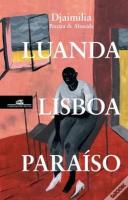 Their story becomes the usual story of many immigrants coming from the old colonies in search of medical treatment or of a better life. In Angola, Cartola was a midwife. In Lisbon, he became a construction janitor, and the city made him indecisive and gloomy. Aquiles, who was still a teenager when he switched country, no longer felt Angolan.
Their story becomes the usual story of many immigrants coming from the old colonies in search of medical treatment or of a better life. In Angola, Cartola was a midwife. In Lisbon, he became a construction janitor, and the city made him indecisive and gloomy. Aquiles, who was still a teenager when he switched country, no longer felt Angolan.
To read
23.12.2018 | by Tatiana Salem Levy
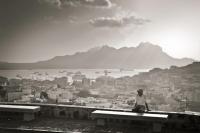 brain drain is a problem. Emigration in Cape Verde is not a bed of roses. In fact, it has created a serious problem of brain drain. One common situation involves young students who decide to study abroad (in Portugal, for example) and do not return to Cape Verde after completion of their university education. According to data between 1997/98 and 2002/2003, about 77% of students (around 5,382) left the country and did not return.
brain drain is a problem. Emigration in Cape Verde is not a bed of roses. In fact, it has created a serious problem of brain drain. One common situation involves young students who decide to study abroad (in Portugal, for example) and do not return to Cape Verde after completion of their university education. According to data between 1997/98 and 2002/2003, about 77% of students (around 5,382) left the country and did not return.
To read
16.12.2018 | by Cláudia Rodrigues
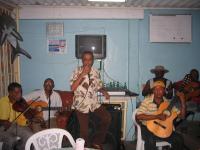 They arrived in Angola 100 years ago. They witnessed the decline of a colonial power that instrumentalized them and the birth of the Angolan nation. The memory of Cape-Verdean immigrants in our country tells a story of oppression and resistance that the creole sociologist Nardi Sousa salvaged and is to publish in a book.
They arrived in Angola 100 years ago. They witnessed the decline of a colonial power that instrumentalized them and the birth of the Angolan nation. The memory of Cape-Verdean immigrants in our country tells a story of oppression and resistance that the creole sociologist Nardi Sousa salvaged and is to publish in a book.
To read
13.12.2018 | by Pedro Cardoso
 Cape Verde is not Africa, Cape Verdeans are “special blacks” and the closest to Portugal. Cape Verde is the country of miscegenation, the “proof” of “racial harmony” of Luso-Tropicalism. For many years, this was the dominant narrative. To be or not to be African continues to be a question.
Cape Verde is not Africa, Cape Verdeans are “special blacks” and the closest to Portugal. Cape Verde is the country of miscegenation, the “proof” of “racial harmony” of Luso-Tropicalism. For many years, this was the dominant narrative. To be or not to be African continues to be a question.
To read
04.12.2018 | by Joana Gorjão Henriques
 We have a lot in common, much more than “having shared the same kind of love”. In what concerns the rights of women, we have an oppression and social injustice past and present in common. We are both oppressed in the sense that we don’t have the power of decision over our own bodies; we cannot decide whether to get out of an exploitative relationship or not because society, family, church, culture, traditions will tell you that you need to put up with it and stop “rebelling”.
We have a lot in common, much more than “having shared the same kind of love”. In what concerns the rights of women, we have an oppression and social injustice past and present in common. We are both oppressed in the sense that we don’t have the power of decision over our own bodies; we cannot decide whether to get out of an exploitative relationship or not because society, family, church, culture, traditions will tell you that you need to put up with it and stop “rebelling”.
Body
04.12.2018 | by Leopoldina Fekayamãle
 In Cape Verde, the sandwich is not making significant inroads. It continues to be foreign, prepared fresh and appreciated by tourists and in a restricted circle of young middle-class professionals. This must be understood within the social and economic context. The following discusses whether or not the sandwich stands a chance in the Atlantic. It looks at the history and current development of Cape Verde, focuses on food issues, and explores how the sandwich fits in.
In Cape Verde, the sandwich is not making significant inroads. It continues to be foreign, prepared fresh and appreciated by tourists and in a restricted circle of young middle-class professionals. This must be understood within the social and economic context. The following discusses whether or not the sandwich stands a chance in the Atlantic. It looks at the history and current development of Cape Verde, focuses on food issues, and explores how the sandwich fits in.
To read
24.11.2018 | by Kaian Lam
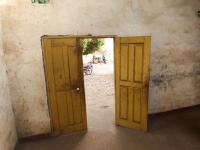 Streams of water trickle from the cotton sacks packed onto the truck, on a high wall. The load no longer weighs only eight tons, it weighs much more, but the accounts are settled, so it doesn’t matter. In my sweater, in my socks, the cotton fibres intertwine with threads of oil. If the truth is light and lies are as heavy as lead, the truck, wobbling at five miles an hour down the steep road, is carrying a great load of lies. But perhaps it is the opposite, that lies are light and the truth is heavy. In the eight hours I spent in the village, the price of a barrel of oil fell by a dollar.
Streams of water trickle from the cotton sacks packed onto the truck, on a high wall. The load no longer weighs only eight tons, it weighs much more, but the accounts are settled, so it doesn’t matter. In my sweater, in my socks, the cotton fibres intertwine with threads of oil. If the truth is light and lies are as heavy as lead, the truck, wobbling at five miles an hour down the steep road, is carrying a great load of lies. But perhaps it is the opposite, that lies are light and the truth is heavy. In the eight hours I spent in the village, the price of a barrel of oil fell by a dollar.
Mukanda
24.11.2018 | by Paulo Faria
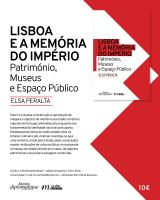 Its purpose is to analyse the several examples by which “images” related to the imperial history of Portugal are built and copied, thus being understood as a fundamental and articulating axis of the Portuguese national identity. The focus is therefore on a “image-memory” or a memory-representation, authorized by the State, by its corporation and by institutions of public culture and not so much on a memory-routine, passed on in the realm of daily social interactions, or a memory-remembrance, passed on verbally.
Its purpose is to analyse the several examples by which “images” related to the imperial history of Portugal are built and copied, thus being understood as a fundamental and articulating axis of the Portuguese national identity. The focus is therefore on a “image-memory” or a memory-representation, authorized by the State, by its corporation and by institutions of public culture and not so much on a memory-routine, passed on in the realm of daily social interactions, or a memory-remembrance, passed on verbally.
City
20.11.2018 | by Elsa Peralta
 On the contrary, myth derives from oral traditions and has its roots in the fantastic. At the same time, although myth does not need reality to acquire meaning, it does maintain some contact with experience and the world, as a kind of reality-in-disguise.
On the contrary, myth derives from oral traditions and has its roots in the fantastic. At the same time, although myth does not need reality to acquire meaning, it does maintain some contact with experience and the world, as a kind of reality-in-disguise.
To read
12.11.2018 | by Roberto Vecchi
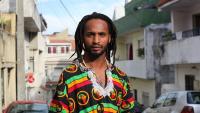 The new case, currently being heard in court, rejects the version of events previously offered by the police officers, and charges them with physical assault, aggravated kidnapping, inhumane treatment and inciting racially-motivated discrimination, hatred and violence - as well as slander, falsifying witness testimonies and falsifying documentation.
The new case, currently being heard in court, rejects the version of events previously offered by the police officers, and charges them with physical assault, aggravated kidnapping, inhumane treatment and inciting racially-motivated discrimination, hatred and violence - as well as slander, falsifying witness testimonies and falsifying documentation.
Body
05.11.2018 | by Ana Naomi de Sousa
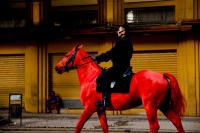 When history and duties to memory are ignored, truth can easily be thought of as a personal choice. Once accommodated in powerful discourse, these “truths” assume impunity: often disregarded and rarely condemned, even though they represent hate speech. Hatred has been normalized and has propelled a radicalism in which “good” struggles against “evil.” In this dichotomy, evil is once again the ‘other’. A discourse that does not humanize the ‘other’ authorizes barbarism – as we have seen in the post-election reactions
When history and duties to memory are ignored, truth can easily be thought of as a personal choice. Once accommodated in powerful discourse, these “truths” assume impunity: often disregarded and rarely condemned, even though they represent hate speech. Hatred has been normalized and has propelled a radicalism in which “good” struggles against “evil.” In this dichotomy, evil is once again the ‘other’. A discourse that does not humanize the ‘other’ authorizes barbarism – as we have seen in the post-election reactions
To read
05.11.2018 | by Fernanda Vilar
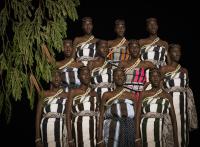 The societies in which we live at different latitudes are legacies of colonialism and constituted by imperial ruins. Depending on our skin colour, social class, academic background and where we live, we can inherit privilege – by benefitting directly or indirectly from the wealth European exploration accumulated – or we can inherit, even accumulate, the oppression of institutional racism and be exposed to inequality and racist colonial violence.
The societies in which we live at different latitudes are legacies of colonialism and constituted by imperial ruins. Depending on our skin colour, social class, academic background and where we live, we can inherit privilege – by benefitting directly or indirectly from the wealth European exploration accumulated – or we can inherit, even accumulate, the oppression of institutional racism and be exposed to inequality and racist colonial violence.
To read
04.11.2018 | by Bruno Sena Martins
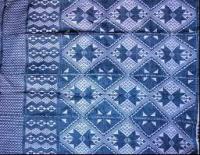 Ana Maria Garcia Nolasco da Silva
Member of the Research Unit in Design and Communication (UNIDCOM) of the Creative University of Lisbon (IADE-U) and of the Centre for Comparative Studies (CEC) of the University of Lisbon.
analascosapopt@gmail.com
In the same way each re-invents his own childhood by creating a narrative – one out of many possible others – with which he identifies in the present moment, so can it be said that national identities are continuously created retroactively though discourse, of which their citizens are active participants.
Ana Maria Garcia Nolasco da Silva
Member of the Research Unit in Design and Communication (UNIDCOM) of the Creative University of Lisbon (IADE-U) and of the Centre for Comparative Studies (CEC) of the University of Lisbon.
analascosapopt@gmail.com
In the same way each re-invents his own childhood by creating a narrative – one out of many possible others – with which he identifies in the present moment, so can it be said that national identities are continuously created retroactively though discourse, of which their citizens are active participants.
To read
18.10.2018 | by Ana Nolasco
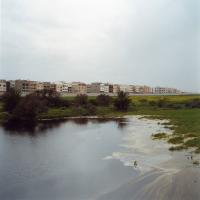 This exhibition addresses the question of cities and their connectivity in the Mediterranean over two radically different time periods. The first section follows a well known historical and geographical sequence through time and space, the Mediterranean of the 16th and 17th centuries, by exploring the connections between six cities (three from the Hapsburg Empire, and three from the Ottoman Empire) which were allied, in opposition, or in a power dynamic of domination. Here the itinerary of the exhibition reflects the geographical space of the Mediterranean : visitors enter in the east by Istanbul, circulate towards Venice and Algiers, before approaching the western part of the Mediterranean, from Genoa to Seville, concluding in Lisbon, the opening to the Atlantic. In the second section, the exhibition presents the cities of the contemporary Mediterranean : two metropolises (Marseille and Casablanca) and two megacities (Istanbul and Cairo).
This exhibition addresses the question of cities and their connectivity in the Mediterranean over two radically different time periods. The first section follows a well known historical and geographical sequence through time and space, the Mediterranean of the 16th and 17th centuries, by exploring the connections between six cities (three from the Hapsburg Empire, and three from the Ottoman Empire) which were allied, in opposition, or in a power dynamic of domination. Here the itinerary of the exhibition reflects the geographical space of the Mediterranean : visitors enter in the east by Istanbul, circulate towards Venice and Algiers, before approaching the western part of the Mediterranean, from Genoa to Seville, concluding in Lisbon, the opening to the Atlantic. In the second section, the exhibition presents the cities of the contemporary Mediterranean : two metropolises (Marseille and Casablanca) and two megacities (Istanbul and Cairo).
I'll visit
15.10.2018 | by vários
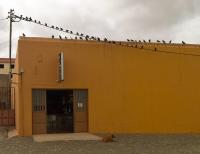 They are stories from which the narrator takes on the ambiguities of the discourses of negritude and whiteness, racism and antiracism, the plasticity of discrimination, the trap of stereotype, and the awareness of prejudice. These are stories that point us to a common past made up of very different memories.
They are stories from which the narrator takes on the ambiguities of the discourses of negritude and whiteness, racism and antiracism, the plasticity of discrimination, the trap of stereotype, and the awareness of prejudice. These are stories that point us to a common past made up of very different memories.
To read
02.10.2018 | by Margarida Calafate Ribeiro
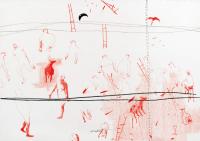 It is a fact: societies forget. Forgetting is a necessary process for creating collective identities, political solidarities and projects of social governance. It plays a role, too, in survival and rebeginning after civil wars or other crises in which societies break down.
It is a fact: societies forget. Forgetting is a necessary process for creating collective identities, political solidarities and projects of social governance. It plays a role, too, in survival and rebeginning after civil wars or other crises in which societies break down.
To read
02.10.2018 | by Hélia Santos
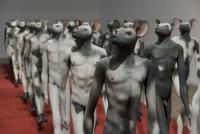 But we can't reverse History, even with the several attempts to naturalize it, to deny it and to manipulate it. Hence the importance of paying attention to the reluctant times we are now living in, which repeatedly insist on following the same old paradigms and refuse to make structural changes.
But we can't reverse History, even with the several attempts to naturalize it, to deny it and to manipulate it. Hence the importance of paying attention to the reluctant times we are now living in, which repeatedly insist on following the same old paradigms and refuse to make structural changes.
To read
22.09.2018 | by Joacine Katar Moreira
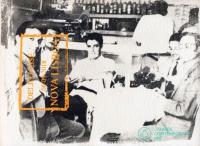 Taking these portraits as a starting point, what segregation does is to create contradictory sentiments between the delectable nostalgia of a privileged minority and the disavowal of a brutally exploited majority. All of history can be interpreted in multiple ways, like a work of art, and in Jasse’s work the myriad readings available to the observer are left open in an approach that is utterly unpretentious.
Taking these portraits as a starting point, what segregation does is to create contradictory sentiments between the delectable nostalgia of a privileged minority and the disavowal of a brutally exploited majority. All of history can be interpreted in multiple ways, like a work of art, and in Jasse’s work the myriad readings available to the observer are left open in an approach that is utterly unpretentious.
I'll visit
14.09.2018 | by Kiluanji Kia Henda